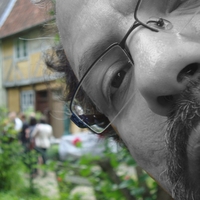Papers by Melanie Schiller
XX Biennial IASPM Conference: Turns and Revolutions in Popular Music Studies, Jun 23, 2021
Schiller, M. L. Manucci (Ed.), The Populism Interviews : A Dialogue with Leading Experts , 2013

Popular Music
On 12 November 2017, the Philippine celebrity musician Pilita Corrales was singing the popular so... more On 12 November 2017, the Philippine celebrity musician Pilita Corrales was singing the popular song ‘Ikaw’ (‘You’) at a gala event in Manila, attended by some of the world's most powerful politicians at the time, US President Donald Trump and Philippine President Rodrigo Duterte. Suddenly, she noticed a male voice singing along with her, its intonation off, its volume increasing. Aware that the event was being recorded, Corrales at first tried to disregard the intruding voice. Eventually however, she could no longer ignore it and, shielding her eyes from the lights with one hand, she tried to spot the uninvited singer in the audience. ‘Where are you, sir’? she asked. Realising that the singer was on one of the balconies, it dawned on her that he was none other than Duterte himself. After giving Duterte room to sing a section by himself, she then joined the president in the song's finale (BBC News 2017; Guardian News 2017; Rappler 2017).
IASPM Benelux Symposium in Amsterdam: Muziek scenes en het belang van lokaliteit”., 2009

Popular Music, 2012
construct and delimit this complex social category. Jacqueline Warwick interrogates historical as... more construct and delimit this complex social category. Jacqueline Warwick interrogates historical assumptions about the role of anger in girl pop and in teenage girls’ lives. Norma Coates’s discussion of Marianne Faithfull theorises the ‘heterosexualizing’ of male homosocial rock-and-roll; almost as a side effect, her rich elaboration of Faithfull’s appearance and behaviour implicitly points up some key distinctions between ‘girlhood’ and ‘womanhood’ during this time period. Patricia Juliana Smith’s essay on the Brit Girls frames the mod aesthetic as a trans-Atlantic refraction, not a mirror image, of American female adolescence. Of the multiple variables inflecting the socio-musical construction of the 1960s teenager, race is arguably the most powerful and the most difficult to articulate. While black musicians and black musical influences appear throughout the essays in She’s So Fine, blackness as a multivocal construct is inconsistently theorised in places. For example, in some places the black femininity of the Supremes and other Motown acts is framed as engaged with ideas of ‘womanhood’ and thus outside the purview of girl pop, while in other places the Supremes’ restrained physical gestures are described as quintessentially girlish and located squarely within the genre. Elsewhere, authors acknowledge in general terms black contributions to the development of 1960s popular music, yet do not fully attend to the specificities of these contributions, as in where examinations of rock culture seem to ignore black R&B and early rock ’n’ roll. In discussions of the British cultural landscape, the social position of the Celtic ethnicities is sometimes identified with that of African Americans, an approach that undoubtedly reflects the subjectivities of some of the artists in question but could have been problematised or nuanced to a greater extent. Given the ambitions and scope of this book, it is unsurprising that no unified approach is taken regarding the role of black artists and influences in the development of girl group music and in 1960s music more generally. Moreover, during the time period in question, African American experience was used, discarded, reframed or ignored to suit the needs of a diverse array of social actors; in this respect, any single approach has the potential to elide key distinctions. Happily, the powerful research that characterises She’s So Fine has uncovered new lines of inquiry in many directions. The pop voice and the civil rights movement? A whole volume on girl pop and post-war teenage masculinity? Empire in 1960s popular music? I for one enthusiastically await this girl group’s next release.
Transdisziplinäre Popkulturstudien

Ashgate popular and folk music series, 2017
On October 3, 2005 Germany celebrated the fifteenth anniversary of the nation’s reunification. Th... more On October 3, 2005 Germany celebrated the fifteenth anniversary of the nation’s reunification. The festivities took place in Potsdam, where Berlin’s trance starDJ Paul van Dyk and singer Peter Heppner were the very first popular music artists invited to perform their song ‘Wir sind Wir – Ein Deutschlandlied’ (We Are We or We Are Who We Are) during the official ceremony. The version performed in the context of the official ceremonial act was a classical interpretation in collaboration with the Deutsche Filmorchester Babelsberg, which eventually granted the song an additional aura of authenticity and state approved high culture. The original version of the song, which was released a year prior to the performance, is a trance-pop celebration of ‘Germanness’ with a particular focus on post-war national achievements. The official video as well as the lyrics tell a (selective) history of the German people, which made the song widely successful but also controversial. In this chapter I underscore how ‘Wir sind Wir’ (re-)narrates ‘Germanness’ as an attempt to fix national identity and assert national pride based upon the performance of a collective past. By briefly tracing the generic ‘routes’ (as opposed to ‘roots’, cf. Gilroy, 1993) of this sonic national narrative as a trance-anthem, and by analysing its sonic, visual, and textual articulation, I aim to unravel the underlying notion of a unitary ‘Germanness’ as opposed to the excluded ‘Other’ of the nation’s traumatic history. Through a close hermeneutic reading of this video, I argue the inherent impossibility of overcoming the ‘forgotten’ past even in the most celebratory accounts of the nation as this officially sanctioned audiovisually mediated performative act.
The Bloomsbury Handbook of Popular Music, Space and Place, 2022

As Europe is facing its most severe crisis since the end of World War II Second World War, populi... more As Europe is facing its most severe crisis since the end of World War II Second World War, populist nationalism is on the rise again all over the continent. Parties like the AfD, Ukip, the Dutch Party for Freedom or Front National refer to nostalgic imaginaries of their respective countries, while emphasizing the divisive character of national idiosyncrasies. Simultaneously, a shared European heritage and cultural values are mobilized as uniting factors against a shared Other: Islam. These constructions of both, disjunctive and shared European pasts, however obliterate rather forgotten memories of its origins – memories of colonialism and fascism. By referring to the German context in particular, and by drawing on and expanding Homi Bhabha’s conception of national temporalities, this article argues for a melancholic character of Europe in its relationship to the past – a Europe that is nostalgic for its lost Empire(s) and anxious about its fragile territorial as well as ideological ...

Popular Music, 2019
An herbal cosmetic has growing demand in the world market and is on invaluable gift of nature. Th... more An herbal cosmetic has growing demand in the world market and is on invaluable gift of nature. The concept of beauty and cosmetics is an ancient as mankind and civilization women are obsessed with looking beautiful. So they use various beauty products that have herbs to look charm and young. Theoretical frame work of the research revolves around the customer perception as how cosmetics consumers based on brand personality association, differ in their perception towards brands. The research helps herbal cosmetic companies to know the factors that revolve around the potential consumers while making the herbal cosmetic purchase decisions. According to the research, products physical qualities, price, advertisement and promotion plays in important role. Consumers of this millennium have become more concerned about their health and also inclined to maintain quality of life which is reflected through the preferential consumption of those products that protects the good state of their health as well as provide maximum satisfaction. A healthy lifestyle Indian has become more inclined to Ayurvedic or Herbal cosmetic therapy as alternative health care for natural cure.

European Journal of Cultural Studies, 2018
Mass migration and the so-called refugee crisis have put questions of national identifications hi... more Mass migration and the so-called refugee crisis have put questions of national identifications high on political and social agendas in Germany and all over Europe, and have ignited anew debates about the inclusiveness and exclusiveness of Germanness. In this context, popular culture texts and practices offer insights into how identities are marked, and they engage in and produce discourses about national belonging. In this article, I will focus on how popular music in particular plays a pivotal role in the creation and negotiation of national identifications as it functions as a site of continuous (re-)articulations of Germanness. I focus on a recent peak in the controversy of the discourse surrounding Germanness as it unravelled in 2013, when the nation’s most successful Heimat- and Schlager singer Heino ironically covered, among others, the song ‘Sonne’ by Germany’s internationally most successful (and notoriously controversial) popular music export: Rammstein. In analysing the mu...

This book argues for the importance of popular music in negotiations of national identity, and Ge... more This book argues for the importance of popular music in negotiations of national identity, and Germanness in particular. By discussing diverse musical genres and commercially and critically successful songs at the heights of their cultural relevance throughout seventy years of post-war German history, Soundtracking Germany describes how popular music can function as a language for “writing” national narratives. Running chronologically, all chapters historically contextualize and critically discuss the cultural relevance of the respective genre before moving into a close reading of one particularly relevant and appellative case study that reveals specific interrelations between popular music and constructions of Germanness. Close readings of these sonic national narratives in different moments of national transformations reveal changes in the narrative rhetoric as this book explores how Germanness is performatively constructed, challenged, and reaffirmed throughout the course of seve...
MENSCH MASCHINEN MUSIK. DAS GESAMTKUNSTWERK KRAFTWERK. HERAUSGEGEBEN VON UWE SCHÜTTE











Uploads
Papers by Melanie Schiller
Melanie Schiller’s book is to be thoroughly recommended as a major
achievement in the area of pop music and national identity formation. Unlike so many sociological studies on the same topic, she manages to ease out the decisive points in her meticulous contextualisations and in-depth interpretations of carefully selected pop songs. Combined with her theoretical contribution to the discussion, Soundtracking Germany
is an indispensable work.